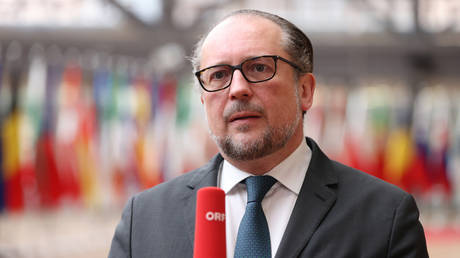EU leaders and the European Central Bank have argued over a plan to use profits generated by Russian assets that are frozen under EU sanctions, Bloomberg reported on Friday, citing anonymous sources.
The EU has frozen assets and reserves belonging to the Russian state worth some worth some €207 billion ($217 billion) since the beginning of Moscow’s military operation in Ukraine. The assets are expected to generate around €3 billion in interest. A large chunk of the funds is held at the Belgian settlement giant Euroclear, where it generated nearly €750 million in taxable profit by the first quarter of this year, according to the clearing house’s own data.
The EU leaders have repeatedly called to use the funds ‘to rebuild’ Ukraine and agreed last month to begin work on a windfall tax to acquire the interest generated on the funds.
However, ECB President Christine Lagarde warned during a meeting on Thursday that a windfall tax could undermine the euro and lead to a re-think among reserve holders, Bloomberg reported, quoting people familiar with the discussions.
Lagarde reportedly said that the amount at stake was far greater than the few billions that the move would generate for Ukraine. Any decision should only happen if the G7 nations, among which are Canada, Japan, the United Kingdom and the United States, are on board too, she added.
European commission Vice President Valdis Dombrovskis reportedly countered Lagarde’s arguments by saying that the windfall option does not affect Russia’s assets themselves nor does it apply to the EU’s role in safekeeping securities. Lagarde is said to have shaken her head at Dombrovskis’ counterarguments.
Some member states support Lagarde’s position while others believe that it was only a question of how to advance, and not if, Bloomberg concludes.
Moscow has repeatedly described any seizure of its assets by Western governments as theft and illegal under international law.
For more stories on economy & finance visit RT's business section


